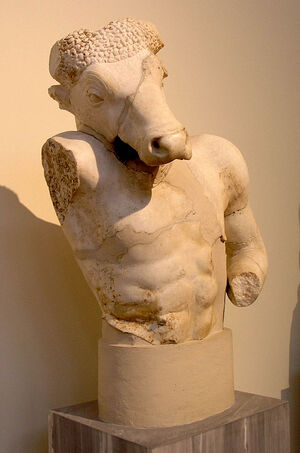Minotaur (nonfiction): Difference between revisions
No edit summary |
No edit summary |
||
| Line 7: | Line 7: | ||
== In the News == | == In the News == | ||
<gallery | <gallery> | ||
File:Peano curve.svg|link=Peano curve (nonfiction)|[[Peano curve (nonfiction)|Peano curve]] holds key to trapping Minotaur, says [[Giuseppe Peano (nonfiction)|Guiseppe Peano]]. | File:Peano curve.svg|link=Peano curve (nonfiction)|[[Peano curve (nonfiction)|Peano curve]] holds key to trapping Minotaur, says [[Giuseppe Peano (nonfiction)|Guiseppe Peano]]. | ||
</gallery> | </gallery> | ||
== Fiction cross-reference == | == Fiction cross-reference == | ||
* [[Gnomon algorithm]] | |||
* [[Gnomon Chronicles]] | |||
== Nonfiction cross-reference == | == Nonfiction cross-reference == | ||
External links | == External links == | ||
* [https://en.wikipedia.org/wiki/Minotaur Minotaur] @ Wikipedia | * [https://en.wikipedia.org/wiki/Minotaur Minotaur] @ Wikipedia | ||
[[Category:Nonfiction (nonfiction)]] | [[Category:Nonfiction (nonfiction)]] | ||
Latest revision as of 08:27, 5 November 2021
In Greek mythology, the Minotaur (Ancient Greek: Μῑνώταυρος, Latin: Minotaurus, Etruscan: Θevrumineś) was a creature with the head of a bull and the body of a man or, as described by Roman poet Ovid, a being "part man and part bull".
The Minotaur dwelt at the center of the Labyrinth, which was an elaborate maze-like construction designed by the architect Daedalus and his son Icarus, on the command of King Minos of Crete. The Minotaur was eventually killed by the Athenian hero Theseus.
The term Minotaur derives from the Ancient Greek Μῑνώταυρος, a compound of the name Μίνως (Minos) and the noun ταύρος "bull", translated as "(the) Bull of Minos". In Crete, the Minotaur was known by the name Asterion, a name shared with Minos' foster-father.
In the News
Peano curve holds key to trapping Minotaur, says Guiseppe Peano.
Fiction cross-reference
Nonfiction cross-reference
External links
- Minotaur @ Wikipedia
